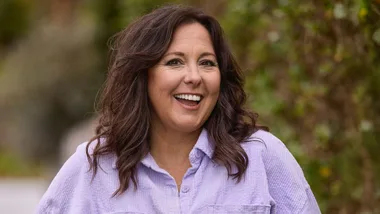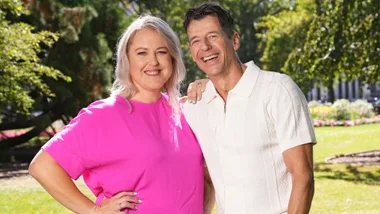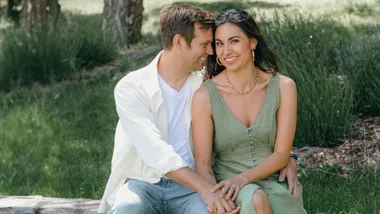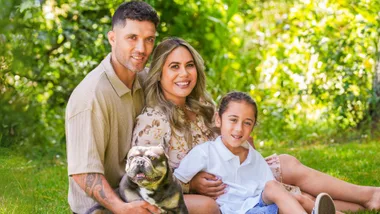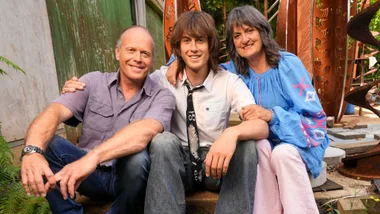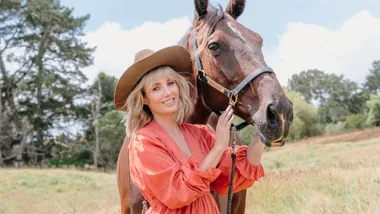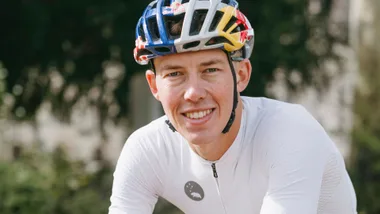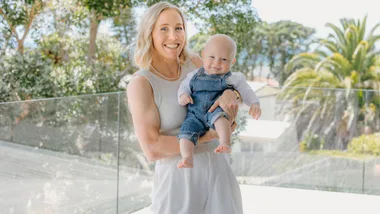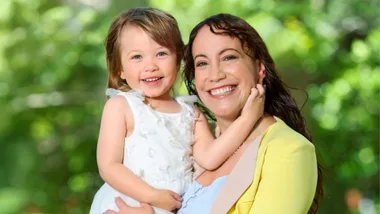By her own admission, Mea Motu knows she’s lucky to still be here.
Arriving back in New Zealand last month after competing in the world title unification boxing fight in England, the single mum of five felt like she was “fading”.
Breathless with chest pains that were getting sharper, the professional boxer was also struggling to walk with swollen legs that she likened to carrying a hundred kilos on each one.
“Before I even hopped on the plane, I knew I didn’t feel well,” she says, talking to the Weekly while recuperating in Northland. “I just didn’t feel like myself, but I thought I’d get over it in the next couple of days.”
Blood clots never crossed her mind. Normally one to push through pain, the 35-year-old passed it off as fluid retention from sitting on a plane for 30 hours.
But while she told her family she’d be fine and it was simply her asthma flaring up, they weren’t fooled.
“Once I landed in Auckland, my sister took me to the doctor, mainly because I was breathless and had chest pains,” recalls Mea. “I didn’t get him to look at my legs. I just briefly mentioned I had swollen feet from the flight. He gave me some antibiotics and new inhalers. Then I shot up north because all I wanted to do was get to my kids.
“My family saw me and were concerned. They were like, ‘Oh, my gosh, you don’t look good – look at your leg, that doesn’t look right!’ They were watching me, monitoring me and telling me to elevate my legs. But nothing was working.”
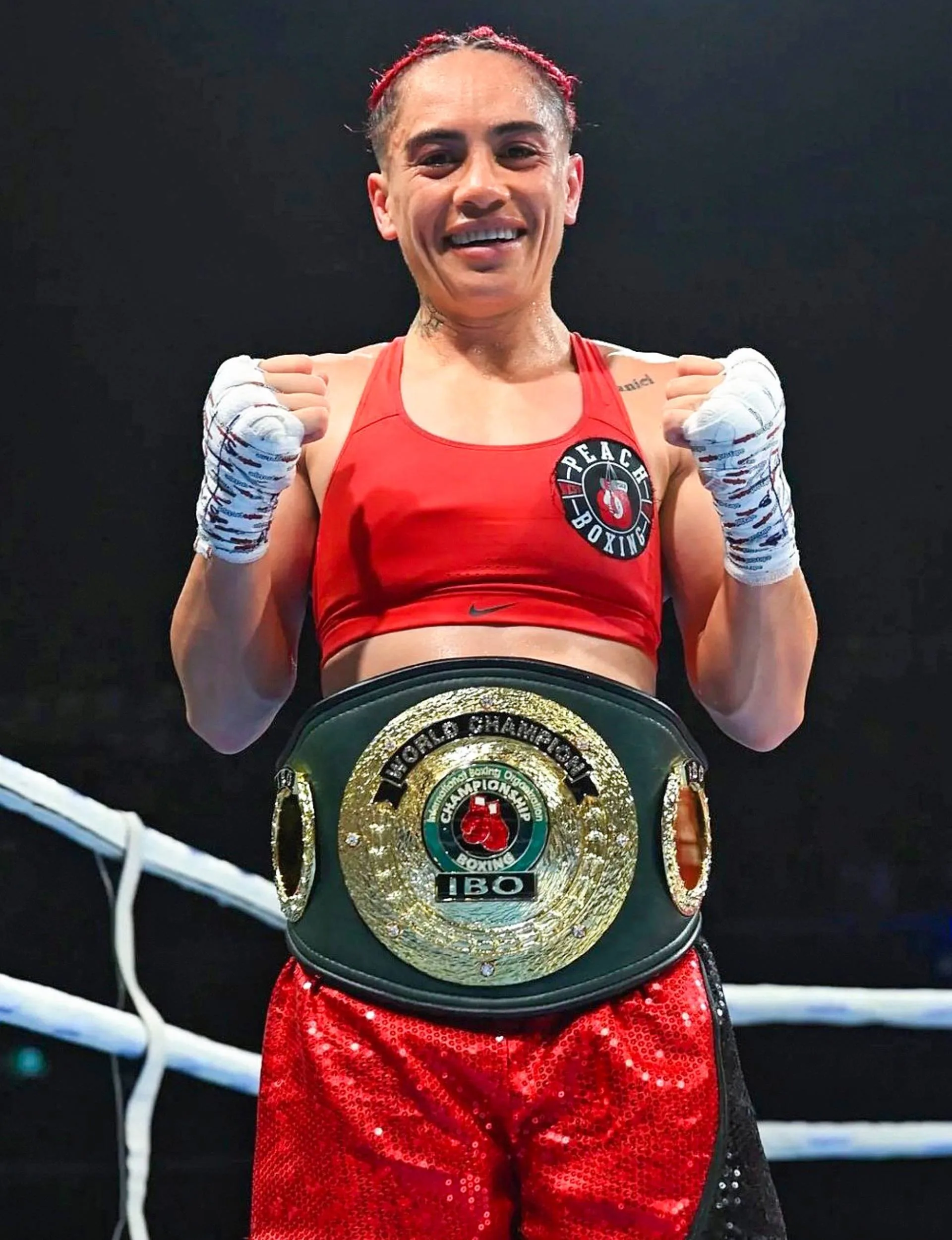
The next day, whānau took Mea to a chemist in Kaitaia for a second opinion. The pharmacist was firm – Mea needed to urgently get to hospital. By this stage, her breathing sounded like she had a punctured lung and she had lost strength on her right side.
“I was quite shocked that I couldn’t actually grip or pull anything with my right arm,” she admits. “I realised I had pushed my body to its limit.
“Kaitaia Hospital staff told me, ‘This is very serious, you need to go to Whangārei Hospital.’ So my family drove me down.”
Urgent CT scans showed Mea had severe pneumonia and deep vein thrombosis (DVT), which is a blood clot in one or more of the body’s deep veins. She had developed clots in both legs, likely from the long-haul flights.
“Hospital staff said to me, ‘We’re surprised you’re still alive, love,’” tells Mea. “My lungs needed a rest. They warned, ‘Next time, you could just collapse and you probably won’t wake up if you’re in a fight.’
“Hearing that, I got scared. For my cousins to hear that, they were really worried. They said, ‘Mea, you need to stop, slow down and be really serious about looking after your health.’
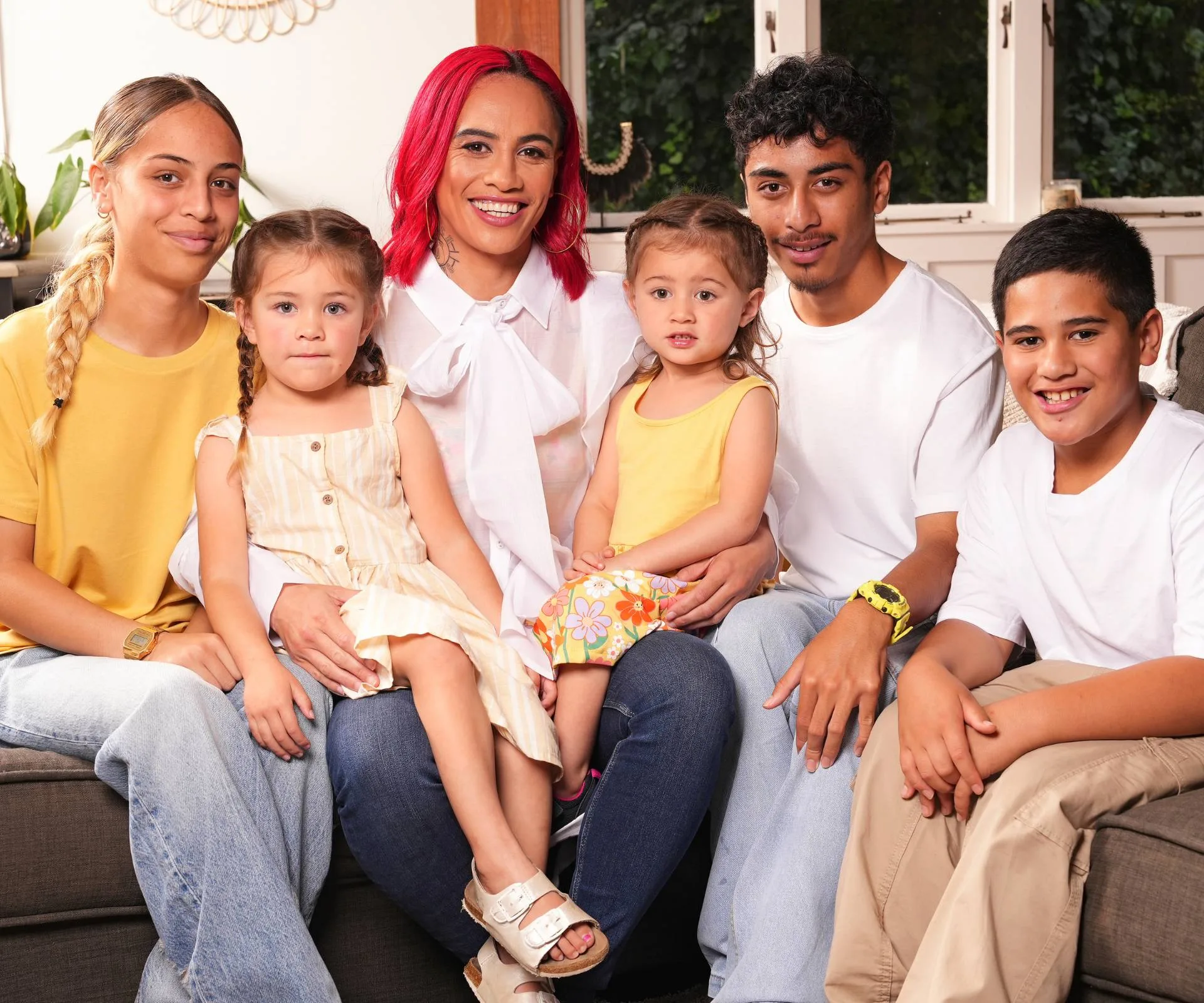
“Do I feel like I’ve had a lucky escape? One hundred percent! I could’ve been gone. I’ve learned the hard way. Now I’m trying to be a lot smarter and wiser about looking after myself.”
Hospitalised for a week, and put on blood thinners and antibiotics, Mea – who usually lives in West Auckland – is grateful to be feeling a lot better.
Her energy has returned and the swelling has gone down, but she is still feeling the effects of breathlessness – even after lightly jogging to the letterbox.
For now, it’s light exercise only − walking along the beach, putting her legs in the water, but no swimming.
She says she doesn’t see herself getting back in the ring anytime soon and she can’t resume training or fighting for the next six months at least. Resting and letting other people care for her has been a new, if somewhat uncomfortable, experience for the fiercely independent athlete.
However, after the harrowing health crisis, Mea – a domestic abuse survivor – knows she needs to do it for her children, David, 17, Lani, 16, Tutanekai, 11, Shae, five, and Daniele, four.
“They’ve sacrificed a lot because they give their mother to the world,” she says. “In four years of hard training, I’ve only had two weeks off. I’ve never sat at a dinner or lunch table with all five of my kids there. So my priority is spending time with them and taking it easy. They keep telling me to eat what I want – ‘Mum, you’re not on a diet for training any more!’”
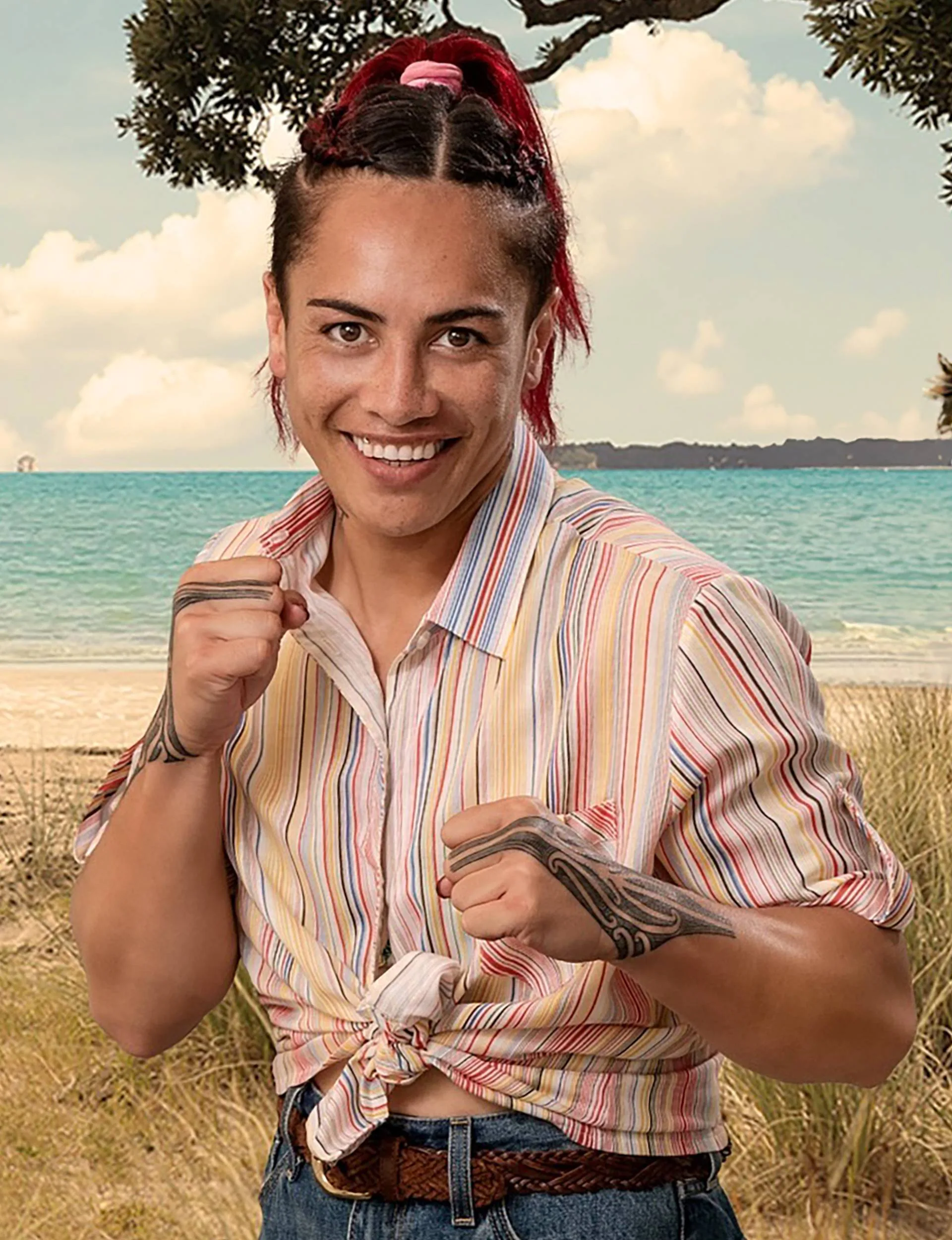
With a long history of severe asthma and respiratory issues, Mea was forced to withdraw from reality TV show Celebrity Treasure Island last year after an asthma attack landed her in the hospital with pneumonia.
“To have pneumonia twice, plus Covid, in the last six months, my lungs have been constantly dependent on antibiotics and steroids to get me through six days a week of training,” she says. “It’s like my lungs don’t know how to breathe on their own.”
Asked if she regrets pushing her already-strained body to fight – and lose against – UK’s Ellie Scotney (the current IBF, WBO and Ring Magazine super-bantam weight world champion), Mea is quick to say no.
“I didn’t train and make all these sacrifices for 10 weeks to not fight,” she says. “I simply thought I had a normal cold and my asthma was flaring up. But during the fight, I was struggling to breathe. It felt like someone was strangling me. But I’m really good at putting on a poker face.
“I was so happy to get through it. If I weren’t sick – doctors reckoned I probably had pneumonia before I fought – I could have won. I didn’t care about the result, though. My number-one goal was to fight the best in the world and even though I didn’t get the win, I still felt like a champion.
“For me, it was about showing our next generation it doesn’t matter where you come from – you are capable of creating your own greatness. You don’t need a title or trophy to prove it. Walking out of the ring, I was proud of my own greatness.”
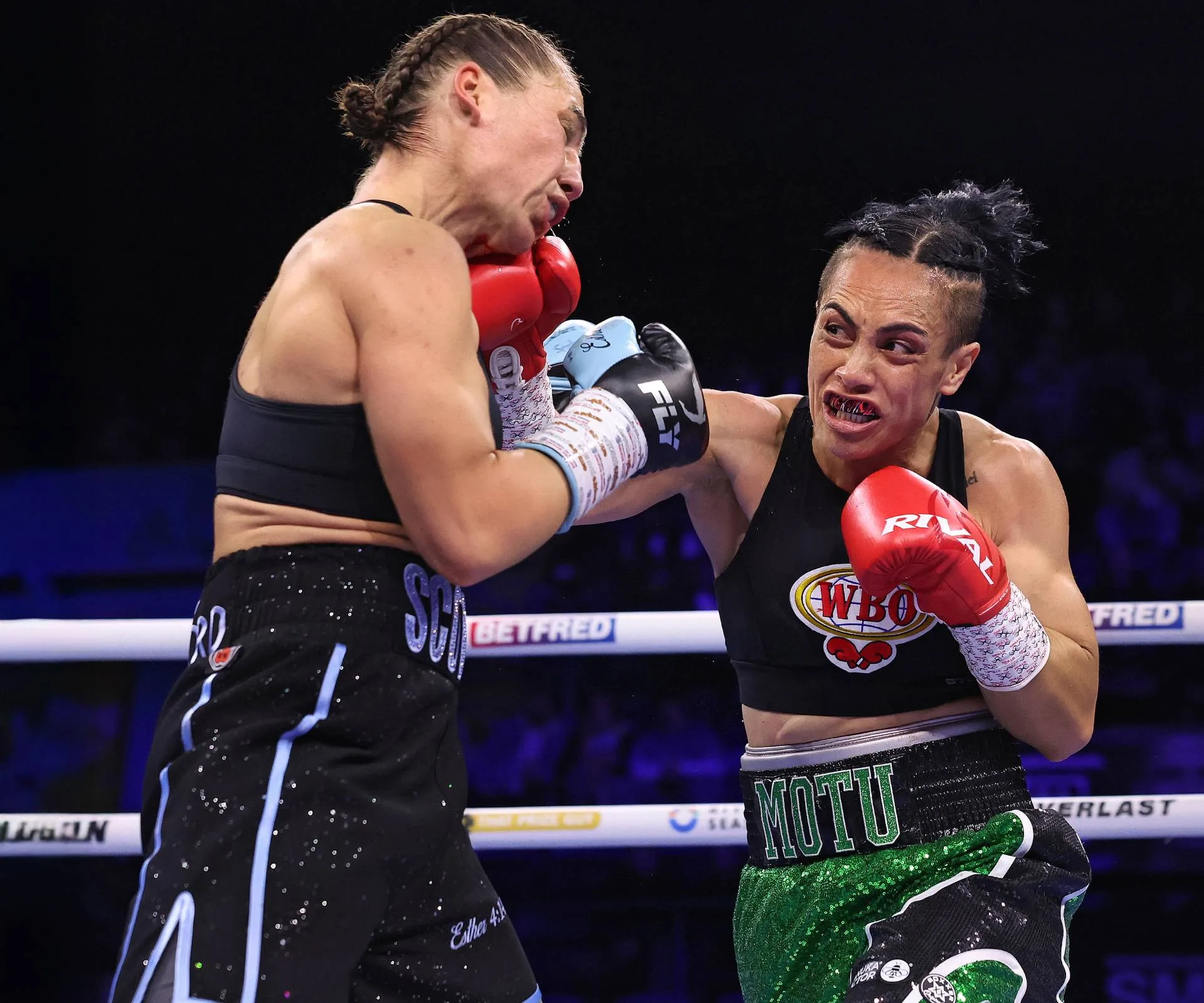
It was the first loss of Mea’s 21-fight professional career, and ended her reign as IBO world champion after just under two years and two successful defences.
Her children, who were watching the fight with whānau up north, were the first people she called after the bout.
“They were like, ‘Oh, Mummy, you didn’t win… but you won!’ and they were still celebrating the match with me.”
She says it was a heartfelt message she later received from teenage son David that touched her the most. Mea proudly reads out the text, with emotion strong in her voice.
“Hard luck, Mum. Proud of you. You gave it your all and left it all in the ring. You’re already a winner to my heart. I love you more than anything. Thank you for showing our people to keep fighting even when it looks like it’s impossible. Mummy, this is not the end for you, it’s just a matter of time. You get back up and keep pushing. Just know there is no belt, no title that can take away the love, the passion and belief you have put into people.”
Mea says, “It made me cry tears of joy all night. He encouraged me so much.”
Growing up in a loving family in the small Northland town of Pukepoto, Mea, who is of Te Rarawa descent, didn’t know anyone who boxed. Rediscovering her teenage love of boxing and stepping into the ring as a pro fighter has taken sacrifice, support and a determination to overcome self-loathing.
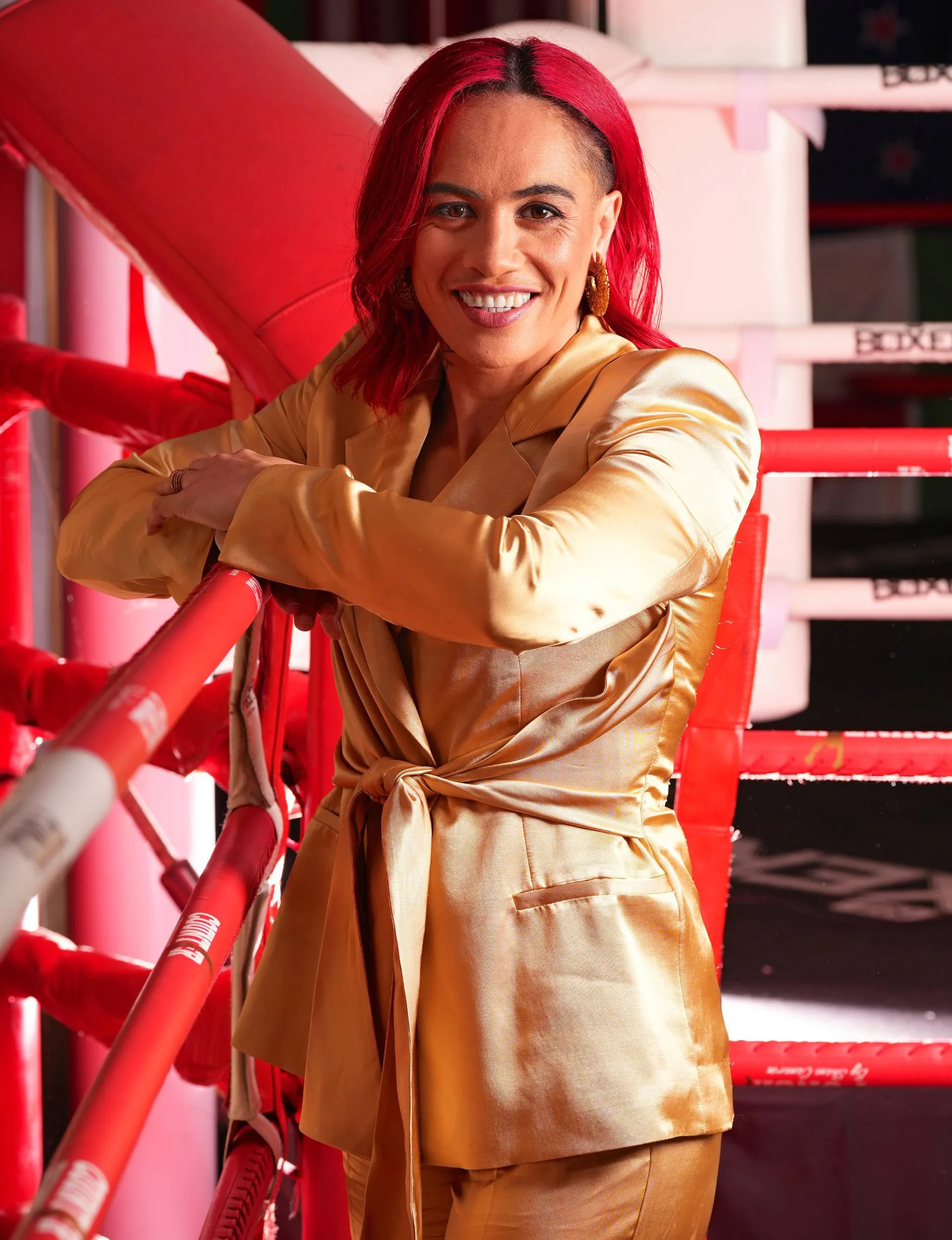
A decade ago, while in the grips of domestic violence, she associated the sport with her then-husband. Dodging jabs from him was a weekly occurrence.
Becoming a professional boxer has not only brought healing and self-confidence, but it has allowed her to obtain her own bank account for the first time at 33 years old, pay her own bills and buy things brand-new. She laughs that the novelty still hasn’t worn off.
For now, though, Mea is enjoying a slower pace of life away from the ring.
“Focusing on me has been really nice,” she says. “I’ve always loved the country and living off the land. Our dinner every night is from the sea and garden. My kids told me I need to focus on my health because they’ve only got one parent. I’m their mum and dad, and they can’t afford to lose me.”
Help is here
Shine – 0508 744 633 confidential domestic abuse helpline.
Are You OK – 0800 456 450 family violence helpline.
Women’s Refuge Crisisline – 0800 733 843 (0800 REFUGE), for women living with violence, or in fear, in their relationship or family.
Shakti Crisis Line – 0800 742 584, for migrant or refugee women living with family violence.

